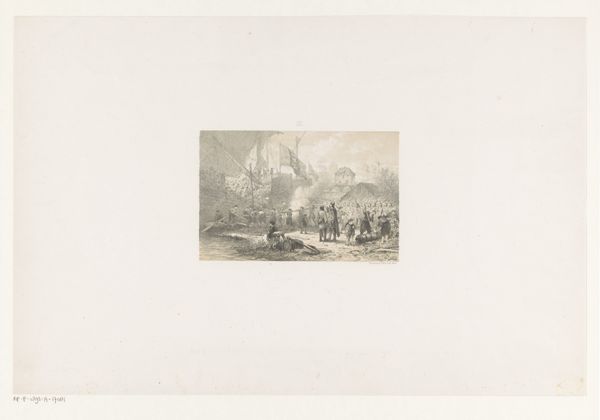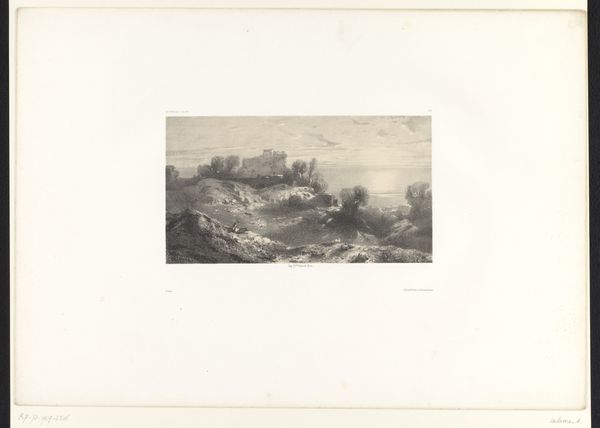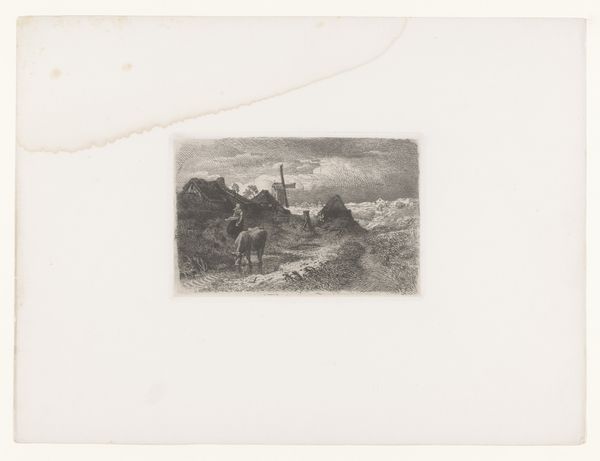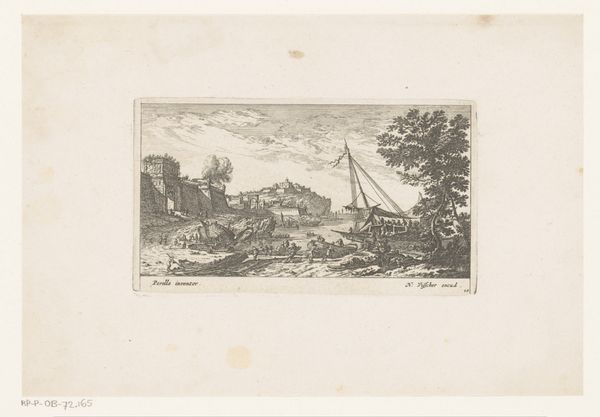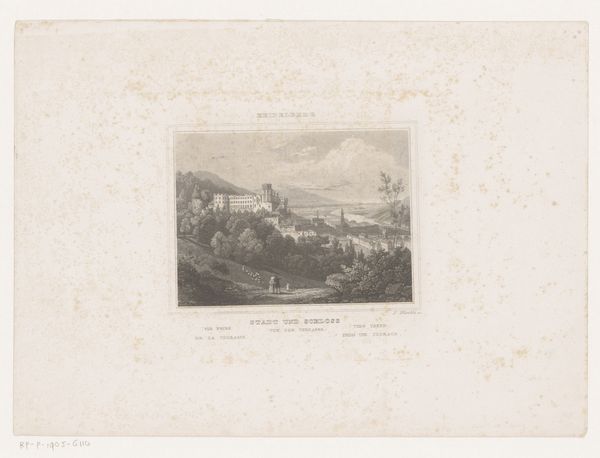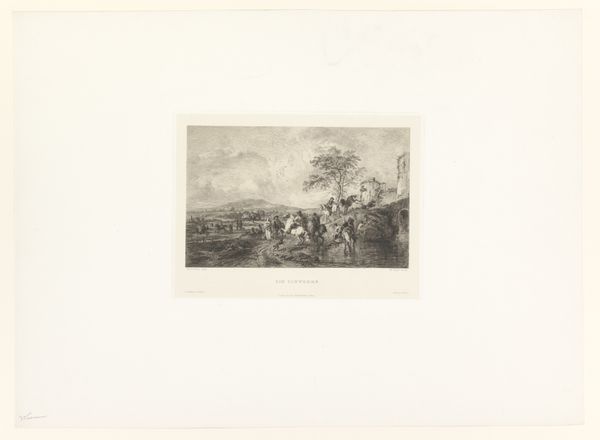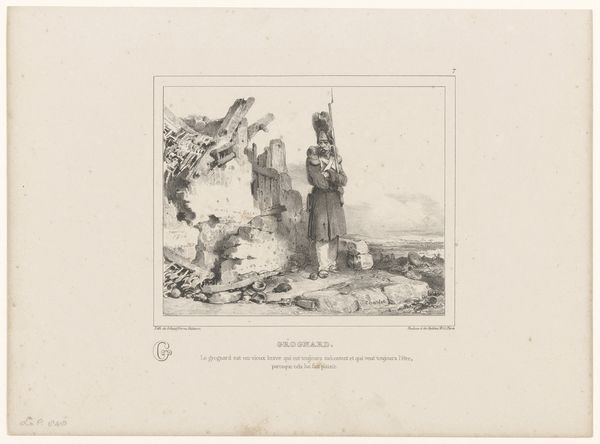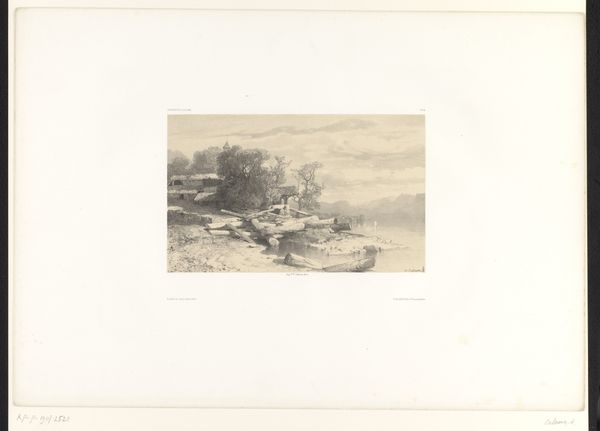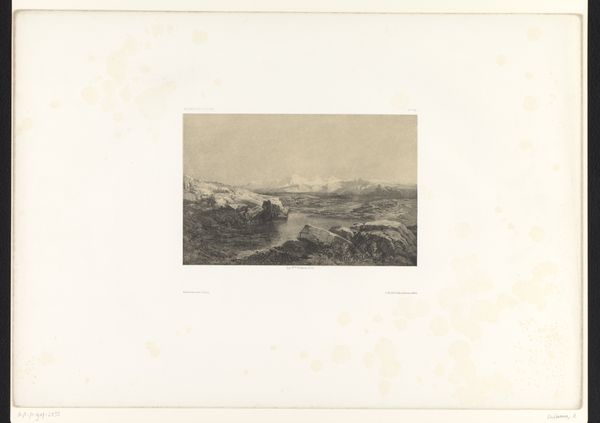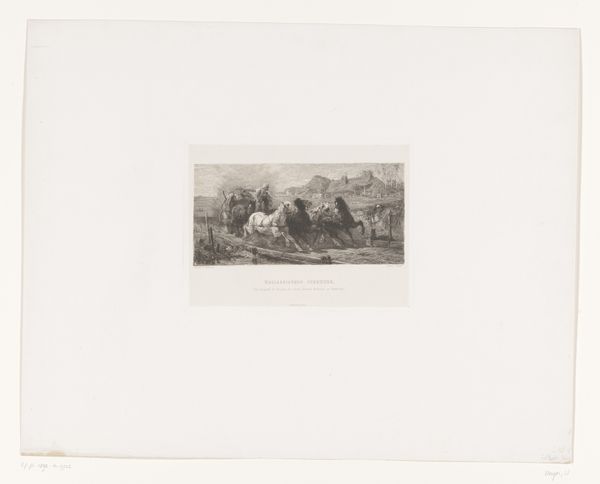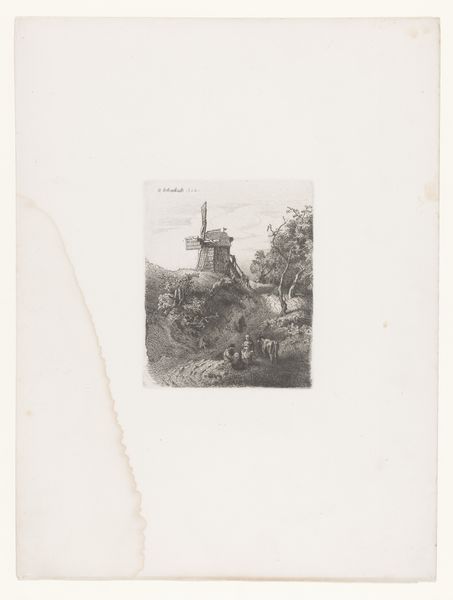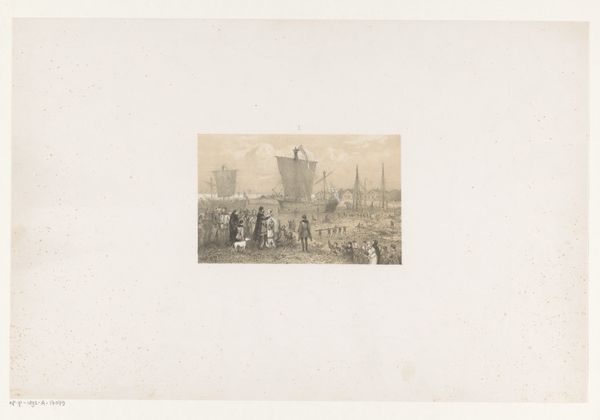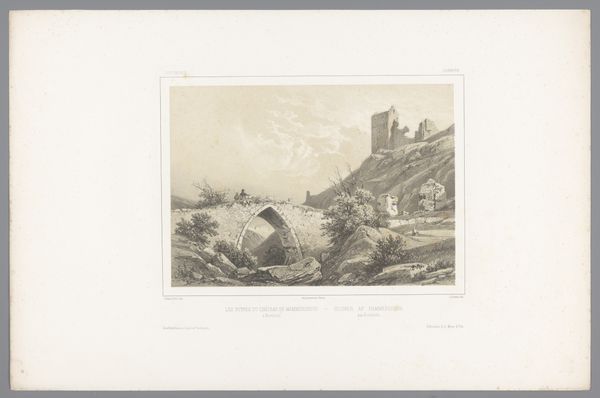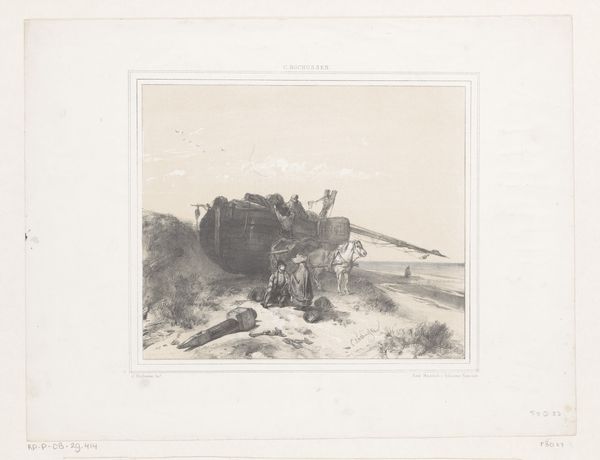
print, etching, engraving
# print
#
etching
#
landscape
#
genre-painting
#
engraving
#
realism
Dimensions: height 348 mm, width 408 mm
Copyright: Rijks Museum: Open Domain
Editor: This etching, "Paulus Potter aan het schetsen op het platteland," created sometime between 1765 and 1865, seems to romanticize rural life. It's detailed but feels almost staged. How do you interpret this work, considering the landscape tradition? Curator: The rural setting is indeed central. Landscapes, particularly during this period, weren't just about visual representation; they carried symbolic weight, reflecting societal values and cultural memory. Do you notice the prominence given to the artist sketching amidst the figures? Editor: Yes, Potter seems like the focal point. It's almost as if the scene revolves around his act of creation. Curator: Precisely. Consider how this portrayal of the artist interacts with the other figures in the scene. Who are these onlookers, and what do they signify about art’s role? The grouping presents a visual metaphor exploring the observer and the observed, blurring boundaries. Consider, how do the artist’s tools themselves function as symbols within this context? Editor: That's a great point! The tools become a symbolic extension of his vision and ability to translate the landscape. I'm thinking about how the placement and inclusion of people emphasize a community dynamic, highlighting a shared observation of nature. Curator: Exactly! It’s interesting how a scene representing supposed rural simplicity is actually layered with ideas about artistry, observation, and societal connection, isn’t it? These images often reinforce cultural narratives. Editor: Definitely, it reveals how much these idyllic scenes were constructed narratives. I'll definitely think more critically about the imagery of everyday life depicted. Curator: Excellent. That interplay between representation and the stories we tell ourselves—that’s where the power, and sometimes the illusion, of these works truly lie.
Comments
No comments
Be the first to comment and join the conversation on the ultimate creative platform.
